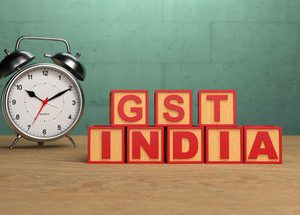NEW DELHI: Tech giant Google on Thursday said Google.org – its philanthropic arm – has announced a grant of Rs 113 crore (USD 15.5 million) to support procurement and installation of about 80 oxygen generation plants and upskilling of healthcare workers in rural parts of the country in partnership with various organisations.
Google.org will support procurement and installation of about 80 oxygen generation plants in healthcare facilities in high-need and rural locations with new grants of about Rs 90 crore (USD 12.5 million) to GiveIndia and about Rs 18.5 crore (USD 2.5 million) to PATH.
It will also finance efforts of Apollo Medskills to help upskill 20,000 frontline health workers through specialised training in COVID-19 management and strengthen the stressed rural health workforce and rural health systems.
Towards this, Google.org will make a Rs 3.6 crore (USD 500,000) grant to ARMMAN to run skilling programs for 180,000 Accredited Social Health Activists (ASHAs) and 40,000 Auxiliary Nurse Midwives (ANMs) in 15 Indian states.
ARMMAN will also use the grant to set up a call centre to provide additional help and advice for ASHAs and ANMs where required.
“As India slowly emerges from the crisis of the past few months, it’s been humbling and inspiring to see individuals, communities, institutions, and governments work together to manage the impact on a scale we haven’t experienced before.
“Our focus at Google has been on making sure people have the information and tools they need to stay informed, connected, and safe,” Google India Country Head and Vice President Sanjay Gupta said.
The company is broadening its COVID-19 support efforts to help strengthen India’s healthcare infrastructure and workforce — especially in rural areas, he told reporters in a virtual briefing.
“With these new commitments, Google is proud to be supporting our partners as they build a bigger, better-equipped healthcare system, help India steady itself after the second wave, and lay the foundations for a sustainable and future-ready healthcare system, he said.
These new commitments build on the Rs 135 crore (USD 18 million) funding that was announced by Google in April for COVID-19 response.
These included two grants from Google.org, totalling Rs 20 crore (USD 2.6 million) to GiveIndia to provide cash assistance to families hit hardest by the crisis to help with their everyday expenses, and UNICEF to help get urgent medical supplies, including oxygen and testing equipment.
In addition to this, Google employees worldwide have donated and helped raise USD 7 million for organisations supporting high-risk and marginalised communities.
Google.org has committed grants worth USD 57 million in India over the last five years.
Asked if Google would offer vaccination booking through any of its platforms, Gupta said the company is trying to enable people who want to offer services to consumers in healthcare, to use Google Play as a platform.
“So as CoWIN opens API and a lot of people want to use those APIs to build better products and services, Google Play will enable all that.
Our effort is to use technology that we understand where let’s say languages, or how to reach out our apps to many more consumers by leveraging Google Playstore, use all those to enable people who understand health very well, to connect those dots,” he added.
The government had, last month, released new guidelines for the integration of CoWIN with third-party applications, easing the way for such apps to offer vaccine bookings.
Following this, platforms like Paytm are now allowing people to use their platforms to not only look for slots but also book vaccination appointments through their platform.
India has been ramping up vaccination to tackle the COVID-19 pandemic.
India has so far administered over 26.5 crore jabs to eligible beneficiaries.
Atul Satija, CEO of GiveIndia, said the organisation will work with PATH to oversee the oxygen programme, providing project management support including procurement and installation of plants.
PATH will identify the target locations and provide technical assistance for the project, working with state governments and other authorities, and complete the installation of oxygen generation plants.
The plants are expected to be installed and ready for use in 3-6 months and will continue to be supported for about three years, he added.
Neeraj Jain, Country Director of PATH India, noted that the organisation provides support to the state governments in putting in place the right kind of oxygen-related ecosystem and health infrastructure that can serve as a foundation for more sustainable and equitable oxygen systems for now and the future.
“The support from Google to Apollo Medskills to upskill 20,000 rural frontline health workers, will surely complement and strengthen the stressed rural health workforce and rural health systems, Srinivasa Rao Pulijala, CEO of Apollo Medskills, said.
Apollo Medskills is the skilling arm of Apollo Hospitals group.
The support from Google.org will enable us to continue augmenting and implementing our tech-based interventions, so that health workers can offer the necessary care and guidance to pregnant women, mothers and children across the country, Aparna Hegde, founder and Managing Trustee of ARMMAN, said.






